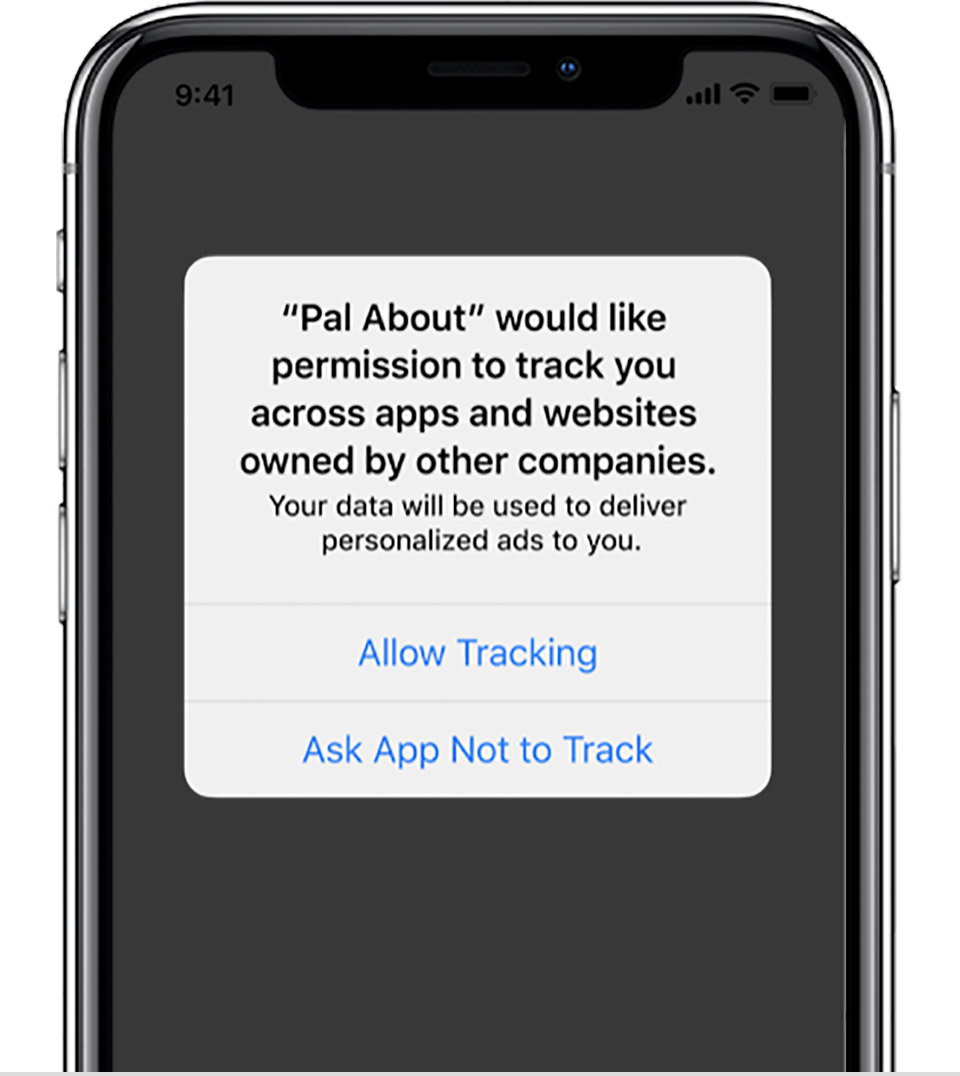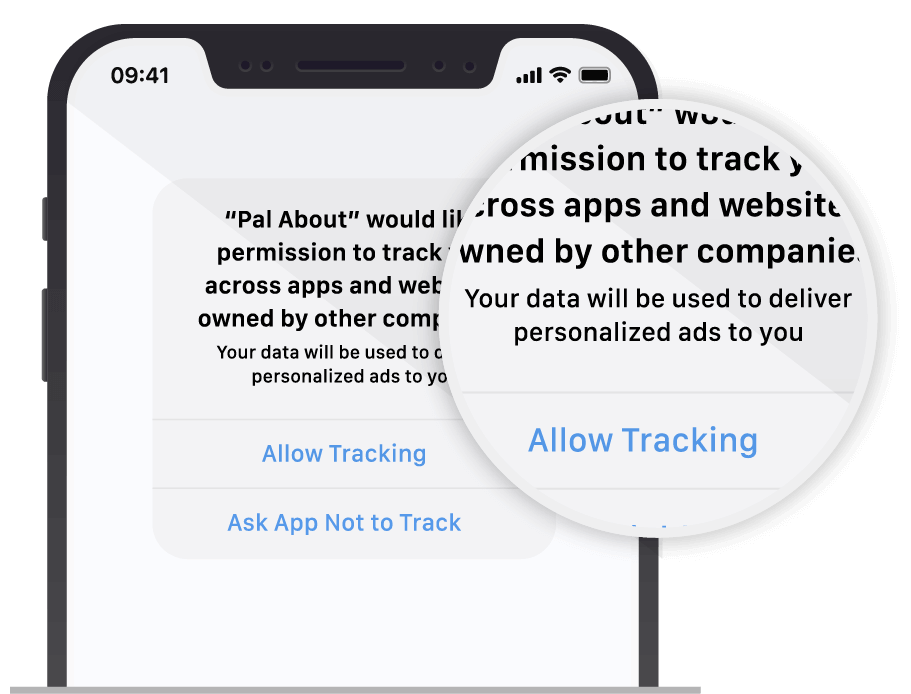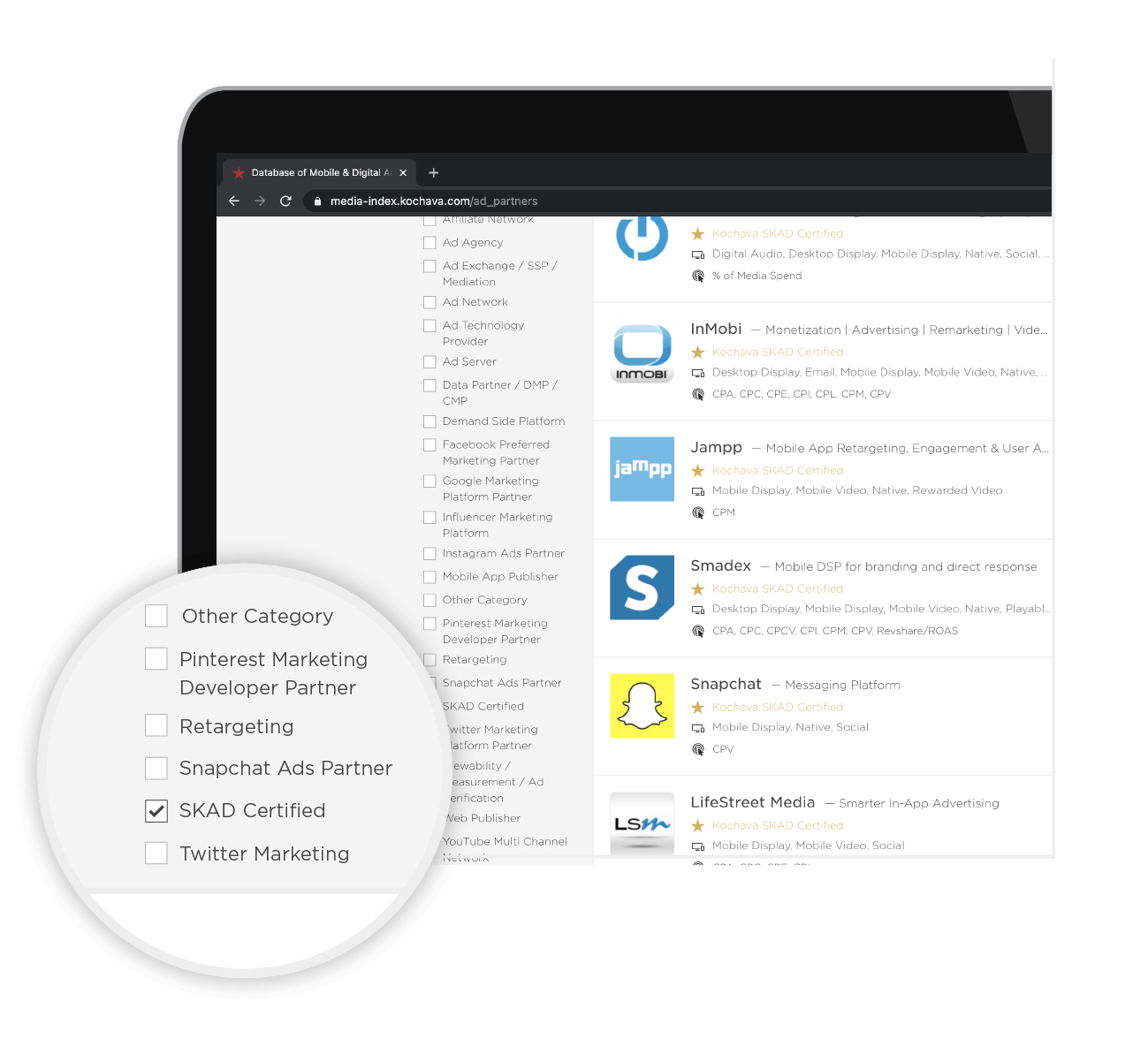5 steps to put on your critical to-do list
2020 may be gone, but its effects are still rippling into 2021 for advertisers and publishers.
With iOS 14 now several months old, the most impactful element—the ATT framework—has yet to be fully implemented. Its upcoming enforcement will have many implications and Kochava is here to help you fast-track your preparedness, so you can maximize your iOS growth efforts.
Here are 5 proactive items to immediately add to your to-do list:
- Choose your approach to the ATT framework
- Adopt and pilot the SKAdNetwork
- Establish an IDFA alternative for marketing operations
- Refactor your omni-channel growth strategy
- Prepare for impacts to ad monetization
1. Choose your approach to the ATT framework

Will you prompt your users for ATT or not?
That’s an important question that you need to answer quickly. You’re encouraged to consult your legal and privacy teams and your app developers to consider all of the implications of your choice. Make sure to contact Kochava on how this decision impacts your measurement and attribution as well.
ATT prompt (NO)
If you don’t prompt your iOS app users with the ATT framework, here are key considerations you should factor into your decision.
- IDFA Access: You will have no access to the IDFA for any of your app users once ATT enforcement commences.
- Reliance on SKAdNetwork: You will be completely reliant on the SKAdNetwork for paid media attribution. Owned media attribution will still be available.
- IDFV for Attribution: The identifier for vendor (IDFV) can be used for deterministic attribution on cross-promo efforts across your own app portfolio within your publisher account.
- Retargeting Limitations: The absence of IDFA for 100% of your first-party audience will hinder reengagement efforts on paid media channels that rely on the IDFA for retargeting.
- User and Device Data: Your first-party iOS user and device data will not be shared with media partners through postbacks.
ATT prompt (YES)
If you do prompt your iOS app users with the ATT framework, here are key considerations you should factor into your decision.
- ATT Optimization: Consider how you will optimize the ATT prompt experience to maximize opt-in rates. Apple has made it clear that incentivizing users to opt-in is not allowed. Within the ATT prompt dialogue carefully craft the customizable language within your control. Be prepared to test different variants to determine which language leads to the highest opt-in rates. Remember that you only get one chance to prompt a user with ATT.

- IDFA Access: You will have access to the IDFA only for those users that opt-in to tracking via ATT. This will enable deterministic attribution where the IDFA is available in the source app and allow for probabilistic attribution (see iOS 14+ restrictions) against mobile web channels where an IDFA is not available. For users who don’t opt-in to ATT, you will have no access to their IDFA once ATT enforcement commences. For these users, deterministic and probabilistic attribution (see iOS 14+ restrictions) will not be available.
- SKAdNetwork: Factor in the SKAdNetwork for paid media attribution to help you capture performance insights on the segment of your first-party audience that doesn’t opt-in to ATT. SKAdNetwork attribution is deterministic but is anonymous by design, meaning you won’t have row-level attribution data ONLY aggregated performance insights by media partner, campaign, geo and other possible attributes depending on the media partner you’re working with.
- IDFV for Attribution: The identifier for vendor (IDFV) can be used for deterministic attribution on cross-promo efforts on your own app portfolio within your publisher account.
- Retargeting: While only a minority of your total first-party audience base will likely opt-in to ATT, the presence of IDFAs for that segment of users will enable ongoing retargeting through paid media channels, a valuable method to drive ongoing engagement and lifetime value.
- User and Device Data: Your first-party iOS user and device data will only be shared with media partners through postbacks when ATT opt-in is present.
2. Adopt and pilot the SKAdNetwork
Whether you choose to prompt users with ATT or not, the SKAdNetwork will need to play a big role in your iOS marketing strategy once ATT enforcement commences. The SKAdNetwork offers deterministic, anonymous attribution that continues to give marketers campaign performance insights in the absence of ATT opt-in while protecting the identity and privacy of individual iOS users.
Kochava offers industry-best SKAdNetwork support, handling all of the heavy lifting of SKAdNetwork adoption for advertisers. Kochava support for SKAdNetwork includes:
- Wrapping all advertiser app calls to SKAdNetwork within the Kochava SDK for easy implementation.
- Offering four robust conversion models to help advertisers gather as much data on campaign performance and user quality as possible via the updateConversionValue method of SKAdNetwork.
- Download our free guide to learn more about our advanced conversion models.
Find the perfect conversion model for your app.
Contact us to request a SKAd conversion bit protocol analysis from the Kochava FoundryTM team. Using your first-party app event data, we’ll narrow in on the perfect conversion model and optimal model configurations to maximize your insights on SKAdNetwork performance.
- Providing install and conversion summary reporting to enable advertisers to dive into campaign performance data and make informed optimization decisions.
- Creating a SKAdNetwork Partner Certification program that helps advertisers connect with media partners who are being proactive in offering advertisers the best opportunity for success on SKAdNetwork.
- Find the latest Kochava SKAd Certified partners in the Media Index. Simply select “SKAD Certified” under TYPE in the left sidebar.

To learn more about Kochava SKAdNetwork support for advertisers, visit https://www.kochava.com/skadnetwork-for-advertisers/.
TIP: Pilot the SKAdNetwork before ATT enforcement
Implement Kochava SKAdNetwork support and run your first pilot campaigns on the SKAdNetwork before ATT enforcement commences. Doing so means you can run Kochava’s real-time attribution in parallel to SKAdNetwork. The ability to compare SKAdNetwork attribution data with your real-time attribution data within Kochava will offer valuable insights that should help you form your attribution model and performance baselines to expect going forward.
Are you concerned your current MMP doesn’t have you covered?
If you work with another mobile measurement partner (MMP) and are unsure of their SKAdNetwork readiness, reach out to us today for a consultation and free demo of our solutions. You can integrate Kochava as your back-up plan to make sure you’re covered when ATT enforcement kicks in.
3. Establish an IDFA alternative for marketing operations
Once ATT enforcement commences, access to the IDFA for all or the majority of your first-party audience will be eliminated. While this change has implications for the advertising industry as a whole, there are plenty of potential implications for your internal marketing operations. Here are important processes and operations to consider for updating:
- Pulling reports
- If you pull reports from Kochava and do not already include a parameter for an alternate identifier for device segmentation, like the IDFV, Kochava Device ID, or your own internal custom identifier, you will need to update these report requests and/or API calls. Once the IDFA is unavailable, an alternative identifier will be needed in order to segment reporting data by device.
- Postbacks to internal systems
- If you leverage custom postbacks to send data to your own internal systems for analytics, warehousing, or other marketing functions, check to make sure you have a fallback identifier for the IDFA. This will ensure that device segmentation is still possible when the IDFA becomes unavailable.
- Other IDFA dependencies
- Talk with your app developers and data analysts to understand the holistic flow of iOS app data within your organization across marketing functions. This proactive step can help you ensure fallbacks are in place ahead of time.
4. Refactor your omni-channel growth strategy
The ATT framework will greatly impact the availability of the IDFA for media buying, selling, ad targeting, and creative optimization on iOS growth efforts. Your marketing team should be formulating a strategy to diversify your iOS growth strategy. Here are the key recommendations we can offer from talking with brands both large and small.
- Maximize your owned media. If you have a portfolio of apps within your publisher account, you can deterministically target and measure acquisition campaigns using the IDFV. Talk with Kochava about how our Kochava for Publishers tools can help you measure these efforts, even if your apps are spread across multiple MMPs.
- Explore opportunities through direct deals and private marketplaces (PMP). Learn as much as you can about the app affinities of your highest value users and pursue direct deal opportunities on cost per mille (CPM) models directly with other publishers.
- Bridge the over-the-top (OTT) and connected TV (CTV) divide. Consider how you can move beyond programmatic mobile channels to drive growth through OTT and CTV campaigns. Kochava has unique integrations with Roku, the largest streaming TV platform in the US, and other major OTT/CTV providers that enable cross-device and cross-platform attribution on mobile growth campaigns through this channel. With precise targeting by household, OTT/CTV offers a new medium to reach the mobile users you want.
5. Prepare for impacts to ad monetization
If monetization through ads is a major revenue stream for your iOS properties, the ATT framework will greatly disrupt it. ATT is sure to result in the loss of IDFA on the great majority of your first-party audience, which will drive down your bidding floor and effective CPM.
Kochava for Publishers offers tools that position publishers to maximize their monetization efforts post-ATT enforcement. Key publisher tools include:
- Out-of-the-box support for SKAdNetwork (This is helpful if you will be registering as an ad network on SKAdNetwork.)
- First-party ad measurement enables you to provide campaign measurement directly to advertisers for direct deals and PMP opportunities. Includes support for all MMPs.
- Identity solutions to onboard audience enrichment data for your first-party user base. Drive up your inventory’s value and demand higher CPMs.
To learn more about our publisher tools, visit: https://www.kochava.com/publishers/
Want to talk to us about your strategy for iOS 14, the SKAdNetwork, and the AppTrackingTransparency framework? We’re here to help.
Talk with an expert on our team and find out how we can help. Contact us or email support@kochava.com.




